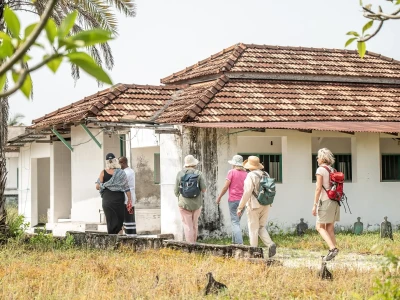
Govt recurrent spending declines; tourism revenues hike
The weekly fiscal report showed that the overall budget surplus had reached MVR 1.6 billion, compared to a MVR 2.1 billion deficit in the same period last year.
Top Stories
As of 1 May, the government of Maldives recorded a decline in operational and travel-related spending, alongside an increase in tourism-related revenue, according to the Weekly Fiscal Developments report issued by the Ministry of Finance on Wednesday.
The report indicates that government operational expenditure fell by 8.6 percent, transportation and travel expenditure by 21.8 percent, and total recurrent expenditure by 3.3 percent compared to the same period in 2024.
Total government expenditure saw a 21.3 percent decline as of the 17th week of 2025, as the administration began implementing measures aimed at improving fiscal discipline. By 1 May, 24.3 percent of the total expenditure allocated in the approved 2025 budget had been utilised.
The Ministry of Finance attributed the reduction in expenditure to several policy decisions. Capital expenditure dropped by 75.8 percent year-on-year due to the government’s review of public sector investment programmes, prioritising projects expected to deliver measurable outcomes.
Other cost-cutting measures also contributed to the decline, including:
-
A 21.8 percent reduction in transport-related spending;
-
An 8.6 percent reduction in operating expenditure;
-
A 3.3 percent reduction in recurrent costs.
However, the report noted a 7.5 percent increase in personnel expenditure. This was largely driven by higher salary payments to the police and armed forces as part of a government pay harmonisation initiative.
Government revenue and grants totalled MVR 13.5 billion by the same date. This represents 34.0 percent of the total revenue and grants projected in the 2025 budget. Of this amount, 78.0 percent was tax revenue.
While overall tax revenue declined compared to the same period last year—partly due to advance bank profit tax payments made in 2024—revenue from the tourism sector rose. Contributing factors include the sector’s continued growth and recent changes to tax rates. Specific tax categories that increased include:
-
Green tax revenue, up 73.7 percent;
-
Departure tax revenue, up 31.9 percent;
-
Tourism Goods and Services Tax (TGST) revenue, up 5.3 percent.
Non-tax revenue increased by 32.3 percent compared to the same period in 2024, with resort land rent accounting for 20.1 percent of this figure.
The report also showed that the overall budget surplus had reached MVR 1.6 billion, compared to a MVR 2.1 billion deficit in the same period last year.




